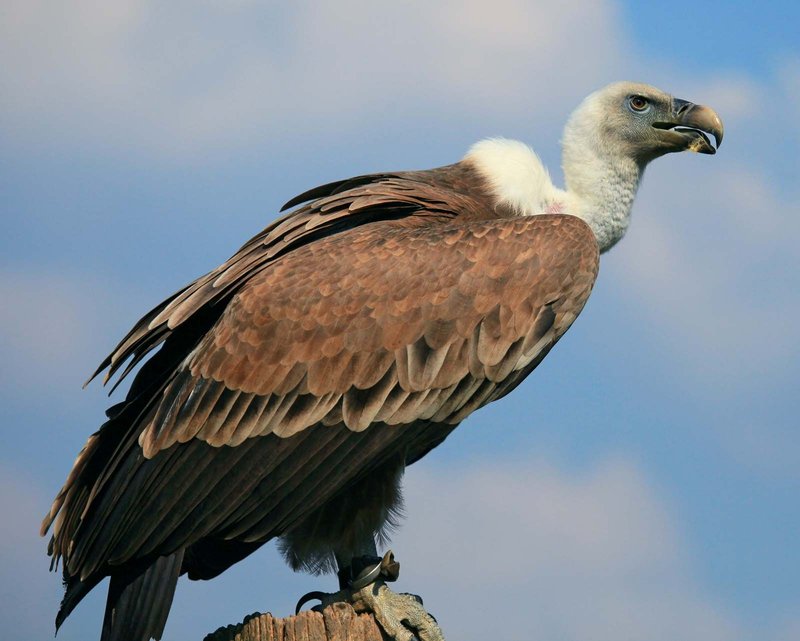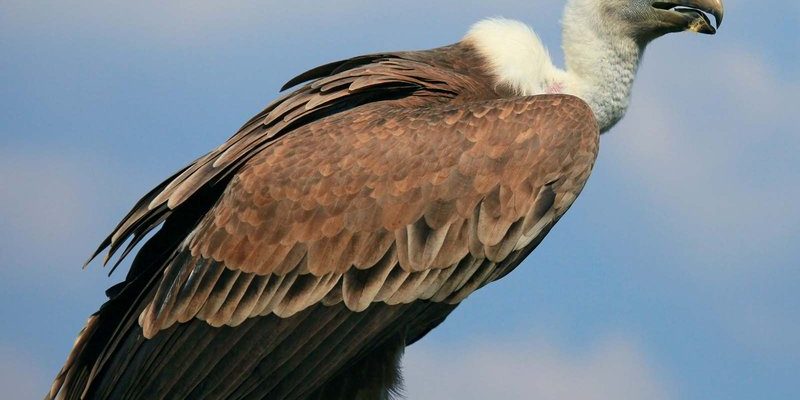
Now, you might wonder why vultures are so important and what makes them unique. Just like we might marvel at a superhero’s special powers, vultures have their own set of impressive adaptations that make them stand out in the animal kingdom. So grab your favorite drink, and let’s dive into ten things you might not know about these remarkable birds.
1. Masterful Clean-Up Crew
Vultures keep our ecosystem healthy, acting as nature’s clean-up crew. When an animal dies, vultures swoop in to feast on the remains. This not only helps keep the environment clean but also prevents the spread of diseases. Think of them as nature’s own sanitation workers. Without vultures, decomposing animals would pile up, creating a breeding ground for illness that could affect other wildlife and even humans.
Moreover, vultures can consume carrion that is often teeming with bacteria. Their highly acidic stomachs can neutralize the harmful pathogens found in decaying flesh. This means they can eat things that would be dangerous for most other animals. Pretty impressive, right?
2. Not All Vultures Are Created Equal
There are about 23 species of vultures worldwide, and they fall into two main categories: Old World vultures and New World vultures. Old World vultures, found in Europe, Asia, and Africa, are more closely related to birds of prey like eagles and hawks. In comparison, New World vultures, native to the Americas, are more closely related to storks.
Here’s a fun fact: New World vultures, such as the turkey vulture, have an incredible sense of smell, unlike their Old World cousins, which rely more on their eyesight to find food. So, while they all share the same scavenging habits, their techniques can vary quite a bit!
3. Amazing Senses
Speaking of senses, vultures have some of the best eyesight in the animal kingdom. They can spot a dead animal from miles above the ground, soaring effortlessly at high altitudes. Their keen vision helps them find food while conserving energy, allowing them to glide on thermal updrafts.
But it doesn’t stop there! As mentioned earlier, New World vultures have an exceptional sense of smell. They can detect the scent of rotting flesh from several miles away. This is especially useful in dense forests where visibility is limited. Who knew vultures had such superpowers?
4. They Don’t Build Traditional Nests
Instead of constructing elaborate nests like many birds, vultures prefer to keep things simple. They often lay their eggs on bare rock ledges, in tree hollows, or even on the ground. This behavior may seem a bit unorthodox, but it allows them to avoid drawing attention to their nesting sites from potential predators.
As a result, vultures tend to be quite secretive about their breeding locations. After all, they’ve got to keep those eggs safe from prying eyes!
5. Social Birds
Vultures are generally social creatures and often gather in large groups, especially around a food source. Watching a flock of vultures feast together is a fascinating sight. They communicate with each other using various vocalizations and body language, establishing a social hierarchy.
Despite their grim reputation, vultures can actually be quite playful. They engage in social behaviors like mutual preening and even play-fighting. This communal living helps them keep watch for potential threats and allows for more effective scavenging.
6. Important Cultural Symbols
In many cultures, vultures symbolize renewal and life. For instance, in ancient Egypt, vultures were regarded as sacred birds, often associated with the goddess Ma’at, who represented truth and balance. They were thought to guard the skies and protect the lives of those below.
Today, some cultures still see vultures as essential for environmental health, showcasing a deep respect for their role in nature. So next time you see one, remember: these birds carry cultural significance beyond their scavenging habits.
7. Threatened Species
Unfortunately, vultures face significant threats due to habitat loss, poisoning, and hunting. In recent years, their populations have plummeted. For example, many species of vultures in Asia have declined drastically because of diclofenac, a drug used in livestock that proves deadly to these birds.
Conservation efforts are crucial to protect vultures. Various organizations are working to raise awareness, promote habitat protection, and reduce harmful practices. After all, we need to appreciate their invaluable role in the ecosystem.
8. Unique Adaptations
Vultures have fascinating adaptations that make them well-suited to their scavenging lifestyle. Their bald heads, for instance, are not just for show. This unique feature helps them stay clean while feeding. When they tear into decaying flesh, they can get quite messy. A feathered head would harbor bacteria, but a bald head can be easily cleaned.
Additionally, their feet are not as powerful as other birds of prey. Instead, vultures have strong beaks designed to tear into skin and muscle. This means they’re built for their specific feeding habits rather than hunting live prey.
9. Vultures and the Food Chain
Vultures play a critical role in the food chain. By consuming dead animals, they recycle nutrients back into the soil, promoting plant growth. This process supports a wide range of wildlife, creating a balanced ecosystem.
Think of vultures as the earth’s recyclers. When they break down carrion, they help maintain the health of various habitats, preventing the spread of disease and promoting biodiversity. So, every time you see a vulture, remember that it’s not just hanging out; it’s doing important work to keep nature in balance!
10. They Can Live a Long Time
Vultures are known for their impressive lifespans. In the wild, they can live up to 20 years or more, while some species in captivity have been known to live over 30 years! Their longevity is partly due to their diet and lifestyle, which keeps them relatively free from diseases.
This long lifespan means that they can play their ecological role for many years, helping sustain their environments over time.
In conclusion, vultures are so much more than what meets the eye. They may not be the most glamorous birds, but their role in the ecosystem, cultural significance, and unique adaptations make them worthy of our awe. So, next time you spot one soaring overhead, take a moment to appreciate all the fascinating things you might not have known about the vulture!

